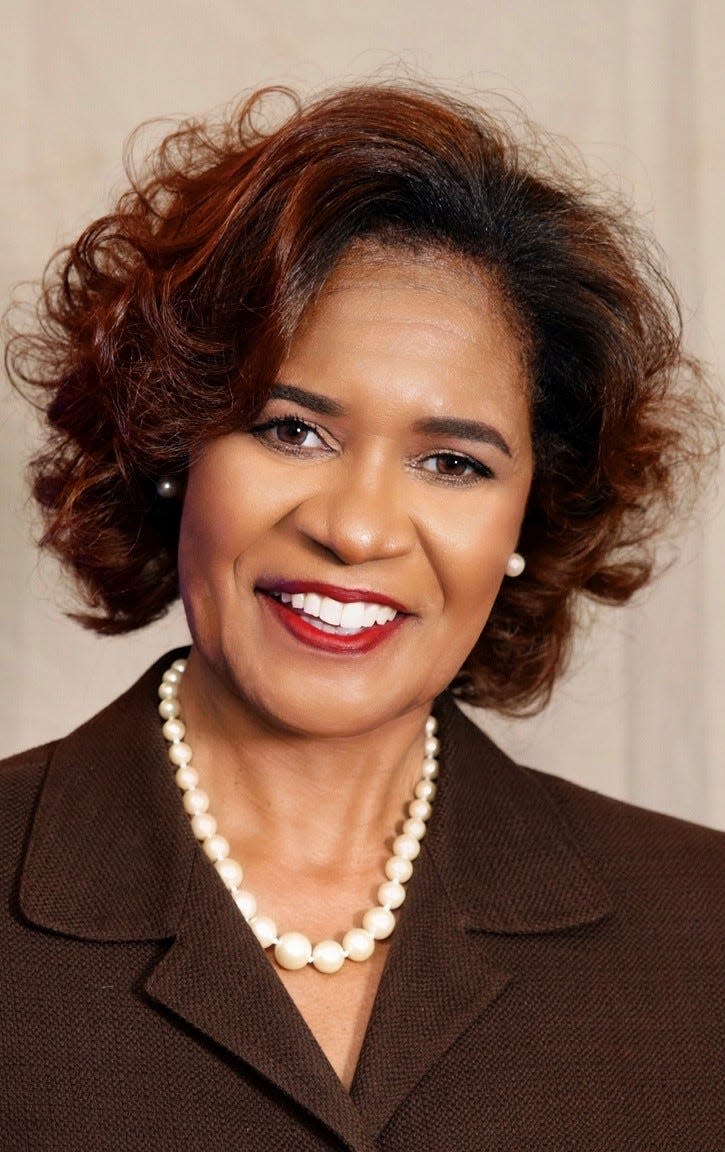Lies matter: Slavery was not an on-the-job training program
- Oops!Something went wrong.Please try again later.
The historical practice of slavery was anything but beneficial to African people. Slavery had, and still has, devastating effects on individuals of African descent. It caused immense physical, psychological, and financial harm, disrupting family and cultural ties and taking a toll on mental and physical well-being. The legacy of enslavement has had a profound and lasting impact on the African American community in the form of economic disparities, health disparities, and educational disparities.
There has been significant opposition to the newly created Florida African American History Standards, specifically with regard to standard SS.68.AA.2.3., which says, "Instruction includes how slaves developed skills which, in some instances, could be applied for their personal benefit." When asked about the new standards for teaching Black history in his state, Gov. Ron DeSantis argued that slavery benefited Black people. According to Frances Presley Rice, a member of Florida’s African American History Standards Workgroup, the intent of SS.68.AA.2.3 is "to show that some slaves developed highly specialized trades from which they benefitted."
The Africans who were brought to America came with a wide array of valuable skills, including agricultural expertise and artisanal abilities such as carpentry, metalworking, and weaving. They also had a rich and impressive history of navigating the ocean. Furthermore, they possessed exceptional proficiency in metallurgy and textile production. It is widely acknowledged that the ancient methods used by Africans to create strong and durable bricks are still unmatched. Their architectural designs are notable for incorporating features such as porches, arches, and columns, and they had a profound understanding of natural resources like plants and animals.
The influence of African music, art, and culture on American artistic expression cannot be overstated. It is a universally recognized fact that the musical styles originating from the African continent have had a tremendous influence on the development of jazz, blues, and hip-hop. These styles are renowned for their intricate rhythms, mesmerizing melodies, and potent storytelling traditions, which have undoubtedly played a significant role in shaping and defining these highly influential genres.
One cannot overemphasize the significant impact of African cultural and artistic practices on the evolution of American visual arts, literature, and theatre. It is important to acknowledge and appreciate the depth of this influence, as it has profoundly shaped and enriched the United States' creative landscape. From the vibrant colors and bold patterns of African textiles to the rhythms and storytelling traditions of African music and dance, these cultural practices have inspired and informed generations of American artists and writers, contributing to a rich and diverse artistic heritage that continues to thrive today.
So, you see, contrary to the beliefs of Gov. DeSantis and Frances Presley Rice, when Africans arrived in the U.S., Africa was much more developed than the United States. African civilizations had made great strides in science, art, engineering, advanced economies, and complex social and political structures, while the United States was still a fledgling nation with limited resources.
Lies matter. They have a highly destructive effect on African Americans, particularly in perpetuating stereotypes and the systematic denial of fundamental rights. It is crucial that we prioritize educating ourselves on the extensive and multifaceted history of African and African-American people.
The recent derogatory statements by public figures like Gov. DeSantis and Frances Presley Rice have highlighted the pressing need for such education. Doing so is essential for fostering a better understanding of the past and creating a more equitable future.
So, let’s tell the truth.

Donna R. Austin is CEO/Founder of Croire Consulting Group based in Tallahassee, Florida. She is a member of the Florida Commissioner of Education's African American History Task Force. She earned a PhD in Educational Leadership, a Master of Science in Guidance and Counseling, and a Bachelor of Science in Psychology from Florida A&M University.
JOIN THE CONVERSATION
Send letters to the editor (up to 200 words) or Your Turn columns (about 500 words) to letters@tallahassee.com. Please include your address for verification purposes only, and if you send a Your Turn, also include a photo and 1-2 line bio of yourself. You can also submit anonymous Zing!s at Tallahassee.com/Zing. Submissions are published on a space-available basis. All submissions may be edited for content, clarity and length, and may also be published by any part of the USA TODAY NETWORK.
This article originally appeared on Tallahassee Democrat: Lies matter: Slavery was not an on-the-job training program

